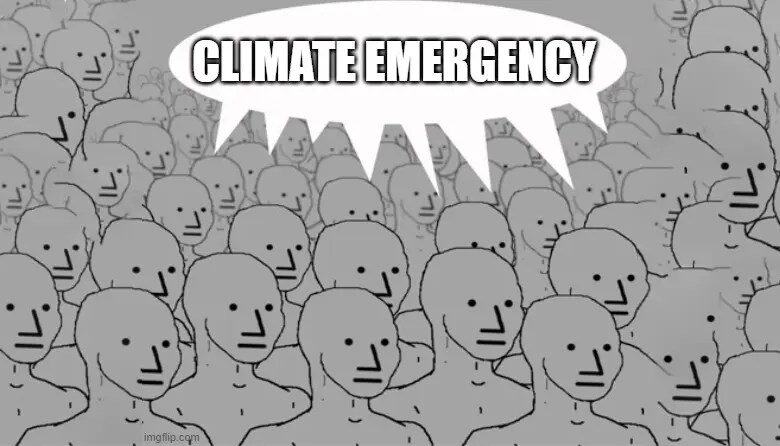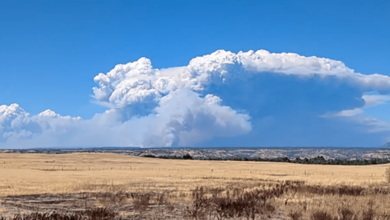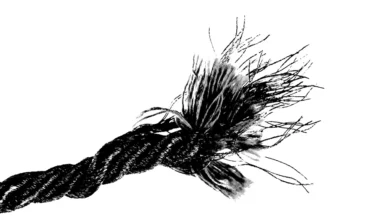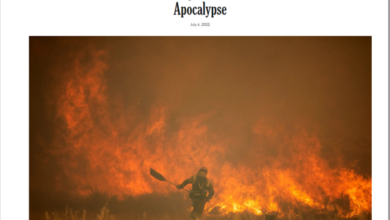When Universities Pander to Ideologues – Watts Up With That?

Universities have traditionally served as bastions of free inquiry and impartial research. This tradition is long past. The recent shift towards unabashed advocacy and activism, is championed by “From Publications to Public Actions: The Role of Universities in Facilitating Academic Advocacy and Activism in the Climate and Ecological Emergency,” and continues this disturbing trend. This paper, ostensibly published in the name of sustainability, reeks of ideological fervor rather than any kind of genuine pursuit of knowledge. Let’s dissect this document, piece by piece, and unveil the glaring absurdities and dangers inherent in this new academic dogma.
A Manufactured “Emergency”
The paper begins with a dire warning: “Planetary heating threatens the collapse of human civilization and ecosystems worldwide”. Such alarmist rhetoric, reminiscent of doomsday cults, sets the tone for what follows. The authors rely on the declarations of over 11,000 scientists to assert that the Earth faces a “climate emergency”. However, they conveniently overlook the nuances and complexities inherent in climate science. The use of the term “emergency” is a rhetorical tool designed to stifle debate and justify extreme measures. It is a classic case of crying wolf, where any dissent is labeled as denialism, and only the most radical solutions are deemed acceptable.
“An emergency is an urgent situation requiring immediate action, yet, despite thousands of Higher Education (HE) institutions around the world having issued their own ‘climate emergency declaration’ [UNEP (United Nations Environment Programme), 2019] and the widespread recognition that universities play a key role in contributing to the public good, the HE sector is not rising to the collective challenge with the urgency commensurate with the warnings”.
The Call for Activism
In a stunning departure from traditional academic roles, the authors argue that universities should move “from publications to public actions”. They propose that academics should engage in advocacy and activism to affect “urgent and transformational change”. The paper outlines several actions that universities should adopt, including altering work allocation models to incorporate advocacy as part of academic duties, facilitating engaged research sabbaticals, and providing training to enhance the effectiveness of engagement. The paper’s agenda is clear: transform universities into breeding grounds for ideological warriors rather than centers of learning.
“We therefore suggest that academics should move from publications to public actions and engage in advocacy and activism to affect urgent and transformational change. We discuss the barriers to engagement in advocacy that academics face, and propose a number of actions that universities should adopt to help overcome them”.
The Illusion of Consensus
The authors lament that the higher education sector is not rising to the collective challenge with the urgency commensurate with scientific warnings. This criticism is rooted in the false assumption that there is a monolithic consensus within the scientific community regarding the climate crisis. In reality, science thrives on skepticism and debate, and the portrayal of a unanimous consensus is a dangerous oversimplification. The paper’s authors seem eager to silence any dissenting voices, branding them as betrayers of humanity. This approach not only undermines the scientific method but also fosters an environment of intellectual intolerance.
“So poor has been the collective response of the HE sector to the CEE that universities have been accused of failing–and even betraying–humanity”.
The Push for Civil Disobedience
One of the most concerning aspects of the paper is its endorsement of civil disobedience as a legitimate form of academic engagement. The authors argue that non-violent civil disobedience has been a driver of major 20th-century changes and should be embraced by academics to address the so-called climate emergency. This call for law-breaking under the guise of noble intentions is reckless and irresponsible. It places universities in a precarious position, encouraging faculty and students to engage in potentially illegal activities. The glorification of movements like Extinction Rebellion and School Strikes for Future further illustrates the paper’s bias towards radical activism.
“One powerful mechanism to rapidly influence policy is non-violent civil disobedience, which has been a driver of major 20th-century changes including universal suffrage, independence from empire, and civil rights for people of colour. In recent years, and particularly since 2018, a number of popular climate and environmental civil disobedience movements have sprung up around the world”.
The Flawed Premise of “Public Good”
The paper posits that universities should play a pivotal role in contributing to the public good, not just through research and education but also by engaging with the public and other audiences outside the sector. While this notion might seem noble on the surface, it is fundamentally flawed. The definition of “public good” is highly subjective and often politicized. By aligning themselves with specific political agendas, universities risk alienating a significant portion of the population they serve. The paper’s suggestion that universities should take an active role in promoting social justice issues, such as race and gender, further politicizes the academic environment.
“Universities have the potential to be ‘pivotal change agents’ in catalysing transitions towards sustainability (Giesenbauer and Müller-Christ, 2020), and over 200 universities have signed the SDG Accord, the HE sector’s ‘collective response’ to the UN Sustainable Development Goals”.
The Ideological Takeover of Academia
The paper’s authors advocate for the incorporation of advocacy into the work mandates of academic staff and propose that universities should reject the notion that political engagement should only be carried out in academics’ spare time, as private citizens. This blatant attempt to politicize academia is alarming. The role of universities should be to foster critical thinking and allow students to explore a diverse range of perspectives, not to indoctrinate them with a particular ideology. The authors’ call for universities to defend the right of academics to engage in protest and push back against emerging threats to academic freedom is ironic, given their own attempts to stifle intellectual diversity.
“Given the urgency of the CEE, we suggest that universities must expand their conception of how they contribute to the public good, and explicitly recognize engagement with advocacy as part of the work mandate of their academic staff”.
The Danger of Groupthink
The paper’s authors express concern over the lack of engagement by academics with environmental activist movements, attributing it to the fear of losing scientific credibility or attracting scorn from colleagues. This statement is a textbook example of groupthink. By promoting a homogeneous viewpoint and discouraging dissent, the authors are fostering an environment where critical inquiry is sacrificed at the altar of ideological conformity. The pressure on academics to conform to a particular narrative, lest they face professional ostracism, is a dangerous trend that threatens the integrity of higher education.
“We note that there is in fact no consensus in academia on what the ‘proper channels’ consist of, and that the theory of change for connecting research to action should itself be a topic of open research and experimentation”.
The Corporatization of Higher Education
Ironically, the paper criticizes the corporatization and marketization of higher education institutions, suggesting that these trends may limit universities’ willingness to promote forms of engagement that call into question the neoliberal agenda. This criticism is particularly rich coming from authors who seek to turn universities into propaganda machines for their own ideological pursuits. The corporatization of higher education is a genuine concern, but the solution is not to replace one form of dogma with another. True academic freedom requires a commitment to intellectual diversity and a rejection of all forms of ideological coercion.
“Nevertheless, while universities have an important role in facilitating greater engagement and advocacy by the whole academic community, their willingness to do so may be limited by the increasing corporatization and marketization of higher education institutions”.
The Hypocrisy of Academic Activism
The paper’s authors argue that those with the greatest knowledge and understanding of these crises have a moral obligation to provide leadership and engage in advocacy and activism. This self-righteous stance is not only patronizing but also hypocritical. It presupposes that only those who agree with the authors’ worldview possess the moral authority to speak on these issues. The idea that academics should use their positions to advance specific political agendas is antithetical to the principles of academic freedom and impartial inquiry.
“We suggest that the traditional academic roles of research and teaching are not sufficient to drive transformative change in a time of rapidly accelerating global crises, so those with the greatest knowledge and understanding of these crises have a moral obligation to provide leadership, and engage in advocacy and activism”.
Conclusion: A Call for Intellectual Integrity
The publication of “From Publications to Public Actions” continues and highlights the troubling shift in the role of universities. The authors’ unabashed call for activism and advocacy undermines the very foundations of higher education. Universities should be spaces for open dialogue, critical inquiry, and the free exchange of ideas. They should not be transformed into echo chambers for ideologically driven agendas. The academic community must resist this encroachment of political activism and recommit to the principles of intellectual integrity and impartiality.
In conclusion, the push for academic advocacy and activism, as outlined in this paper, is a dangerous and misguided attempt to politicize higher education.
While the true mission of universities should be to pursue knowledge and truth, free from the constraints of political dogma, one has to wonder if many if not most universities have deteriorated beyond salvaging. If the university system is to be saved, it will likely be done by emulating the actions being taken in Florida. noted below. Most of the higher education initiatives implemented to date are more about eliminating cultural Marxism practices. But cultural Marxism is the common thread woven through all related “Intersectional” academic issues, whether it is climate change, white supremacy, or that men can menstruate.
Legislative Actions and Policies
- Defunding DEI Programs:
- Florida has enacted laws that prohibit public colleges and universities from using state or federal funds to support diversity, equity, and inclusion (DEI) programs. This move is part of a broader effort to eliminate what state leaders consider politically motivated programs from academic institutions.
- Stop WOKE Act:
- The Stop WOKE Act, signed into law in 2022, restricts how race and gender can be taught in public universities. The law aims to prevent teachings that suggest systemic racism or sexism are inherent in American institutions. Although its implementation has been challenged and blocked by federal courts, it represents a significant attempt to free academic content from dogma.
- HB 1285:
- This legislation focuses on enhancing classical education and providing students with opportunities to explore military service. It also includes measures to protect against conflicts of interest in postsecondary institutions and supports the development of classical teaching certificates.
- HB 999:
- Aimed at furthering Governor DeSantis’s higher education reforms, this bill seeks to defund DEI initiatives, centralize hiring power with trustees, allow for post-tenure faculty review, and eliminate certain academic programs focused on race and gender.
Governance and Administrative Changes
- Board Appointments:
- Governor DeSantis has appointed critics of campus diversity initiatives to leadership positions at state universities, such as Florida Polytechnic University. These appointments are intended to steer these institutions away from DEI-focused policies and towards a more traditional academic framework.
- Realignment of General Education:
- The state has mandated that the Board of Governors and the State Board of Education review and realign general education core courses to ensure they provide historically accurate and foundational education while avoiding identity politics.
Promotion of Classical Education
- Classical and Civic Education Centers:
- Florida has invested in the creation and expansion of centers dedicated to classical and civic education, such as the Hamilton Center for Classical and Civic Education at the University of Florida. These centers are intended to promote a curriculum grounded in Western civilization and civic responsibility.
- Classical Teaching Certificates:
- The state has introduced classical teaching certificates to bolster the teacher pipeline and ensure that educators are well-versed in classical education principles. This initiative is part of a broader effort to prioritize traditional academic subjects and methodologies.
Civil Discourse and Intellectual Freedom
- Intellectual Freedom Assessments:
- Florida has implemented annual assessments of intellectual freedom and viewpoint diversity among students, faculty, and administrators. These assessments are designed to measure and promote a culture of open inquiry and diverse perspectives within academic institutions.
- Promotion of Civil Discourse:
- Legislation has been introduced to elevate civil discourse and intellectual freedom in higher education. This includes ensuring that universities’ missions align with the values of liberty and the Western tradition, and that they provide education relevant to citizenship and workforce needs.
Related




